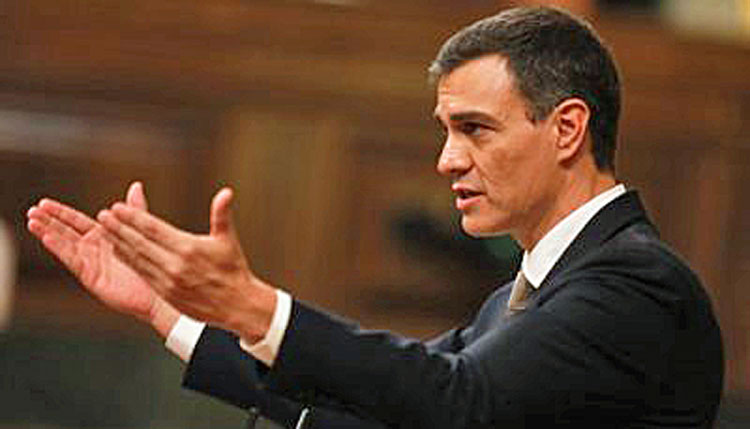Ángel Collado
Pedro Sánchez has finalised with his Podemos partners a draft Budget and a series of announcements on a future housing law that consolidate the coalition government for the whole of next year at the cost of increasing the public deficit and avoiding economic reforms.
In political terms, these State accounts can guarantee that the Executive can reach the end of the legislature, it would only have to extend the 2022 accounts in January 2023; and in economic terms, they are a flight forward in the face of inflation, tax data that do not collect what was announced, the vigilance of Brussels or the escalation of energy prices.
Sánchez has decided to respond to the economic storm clouds and the bad predictions of the polls with various campaigns to boost spending, cultural allowances for 18-year-olds (the new voters) and intervention in the rental market. All on the basis of an internal adjustment of differences within his cabinet in which he once again disavows his vice-president Nadia Calviño, and gives more prominence to the maximum representative of his podemite allies: Yolanda Díaz.
In the announced housing law, the text of which is still unknown, the Government adopts almost all the postulates defended by Podemos and flatly rejected since last spring by the socialist sector of the Executive, by the defenestrated José Luis Ábalos in particular. The Ministry of the sector argued that the State should not set rental prices or go beyond tax breaks. It considered, legal issues aside, that Podemos’ demands could be counterproductive by slowing down investment and reducing the supply of flats. The intervention measures that Ábalos dismissed as populist and counterproductive will now become law.
The housing law was Díaz’s prerequisite for the budget bill to be passed, and there has been no problem with this one. Pedro Sánchez shares with his far-left partners the same faith in tax hikes, despite the fact that the rest of the European Union countries are doing the opposite in order to favour economic reactivation.
The government is reconciling all its sectors and boasts of committing the highest public spending in Spain’s history, despite the fact that it will also break the deficit record. It wants to squeeze as much as possible out of the suspension of European rules on the matter.
As for the basic PSOE-Podemos agreement for the budget, which has 155 MPs in favour in Congress, the government now needs at least 21 more to guarantee its passage through parliament. It is already working on the support of the nationalist and pro-independence parties (including Bildu) that brought Sánchez to power in the motion of censure in June 2018.
The draft Budget includes the percentage of state investment in Catalonia demanded by the Generalitat (18 per cent), which means that in La Moncloa the support of the ERC is more than assured, even if they have to give their parliamentary spokesman, Gabriel Rufián, the prominence required in the coming weeks. They are equally optimistic about the negotiations with the Basque nationalists, who are still awaiting additional funds at the last minute. With Bildu, the process of normalisation or whitening of Batasuna’s heir coalition will continue.
The biggest immediate obstacle to Sánchez’s commitment to populism in economic policy is the labour reform. Calviño pledged before Brussels to maintain the current legislation and Díaz is demanding its repeal in order to, among other measures, give more power to the unions and allow them to control collective bargaining. Sánchez, in his style, is dragging his feet on the issue, but this time the EU authorities are on his back.
Envoys from the Commission have been meeting with representatives of employers’ organisations and trade unions in recent days to get a first-hand look at the possibility of an agreement on a future reform, which looks very difficult. If the President of the Government once again overrules Calviño and also takes on board the podemite theses on labour legislation, he will jeopardise European aid for recovery, no less than the 27,633 million euros already included in next year’s Budget to make it look as if it will balance out.







